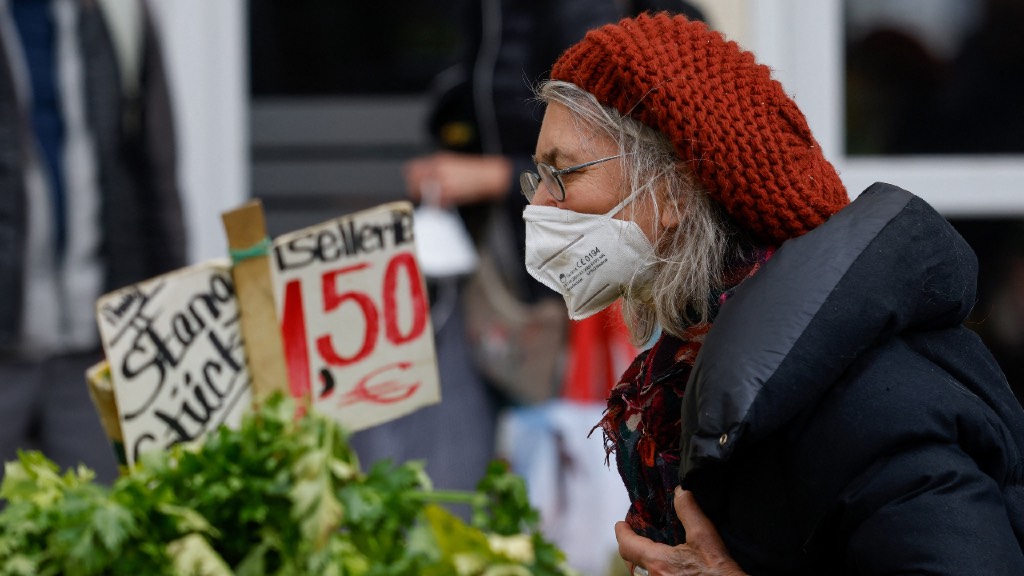
Infection levels remain stubbornly high in a vast majority of the regions. /David Gannon/AFP
Germany is bracing for harsher coronavirus restrictions as the country continues to be in the grip of a third wave. There were more than 25,000 new COVID-19 infections registered on Friday, one of the highest daily numbers recorded in the current wave.
It remains unclear how much of this figure is due to a backlog of data from Easter. And to contain the surge, the government is pushing for a new national lockdown.
READ MORE:
How Brexit destroyed a young man's dream
Video: Dramatic North Sea rescue
Northern Ireland: Brexit strains UK unity
Given the worsening outlook, Chancellor Angela Merkel is expected to push forward new legislation that would give the federal government more control over the pandemic response.
Currently, much of the decision-making power lies with the leaders of Germany's 16 states hence a patchwork of rules exists across the country, despite stubbornly high infection levels in a vast majority of the regions.
An amendment to the Infection Protection Act would allow Merkel to oversee a consistent lockdown strategy across the country. A recent YouGov poll shows 54 percent of Germans would support such an approach.

An amendment to the Infection Protection Act would allow Merkel to oversee a consistent lockdown strategy across the country. /John Macdougall/AFP
Government spokesperson Ulrike Demmer said the necessary legislation could be tabled in German parliament as early as next week. The debate over lockdown comes as Germany works to speed up its vaccination campaign.
On Friday, almost 720,000 first and second doses were administered, the highest daily total so far.
"We need a lockdown to break the current wave and to get considerably below an incidence of 100 [new infections per 100,000 per seven days]," said Health Minister Jens Spahn. "This can then lead to more openings with the assistance of tests in the retail sector, the outdoor restaurant business and at soccer games."
He warned the hospital system is at risk of being overburdened, with the number of available intensive care beds at their lowest level since the start of the pandemic.
Speaking to reporters in Berlin, Spahn stressed the need for an urgent response.
"Our hospitals illustrate how serious the situation really is. The number of COVID-19 intensive care patients is rising much too fast," he said. "It has again reached almost 4,500 across German hospitals. Doctors and nurses right to raise the alarm. They have been under constant stress for months, many months."
He is also entering talks with Russia to explore adding Sputnik V to the country's pool of COVID-19 vaccines.
"Contract negotiations are taking place right now. This can happen relatively quickly as far as I see because the conditions are clear," he said.
"They are comparable to contracts we already have. Ultimately, it must be clear what amounts we are talking about for which time period, and approval provided. The speed for an approval depends solely on how quickly the Russian side provides data," added Spahn.
 简体中文
简体中文

